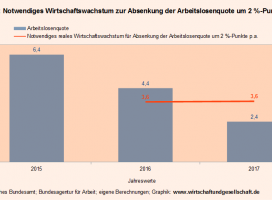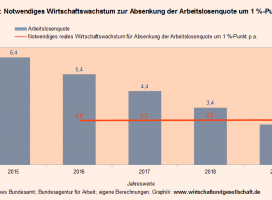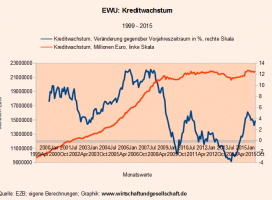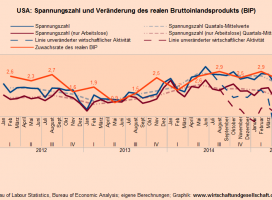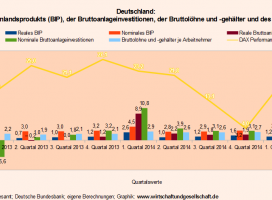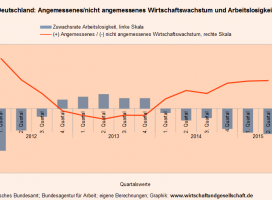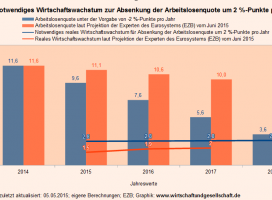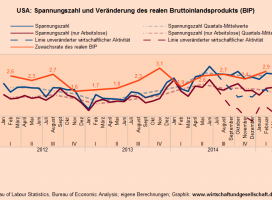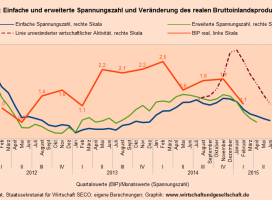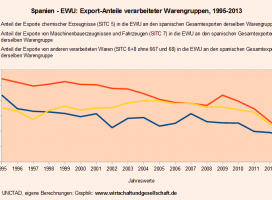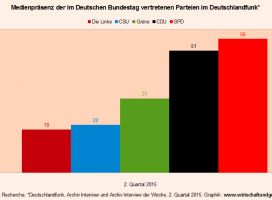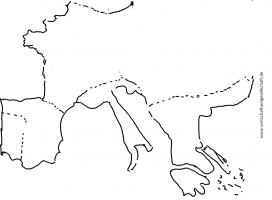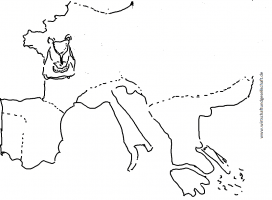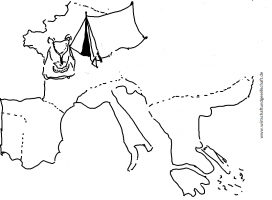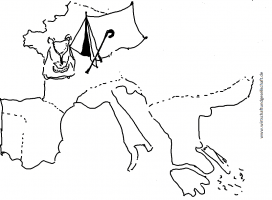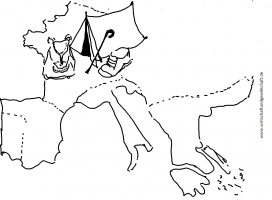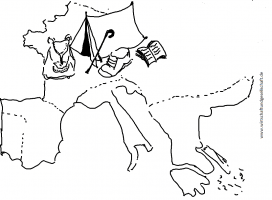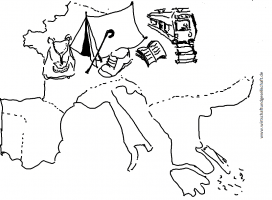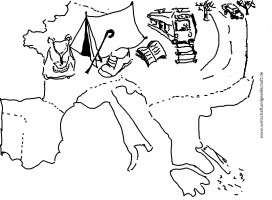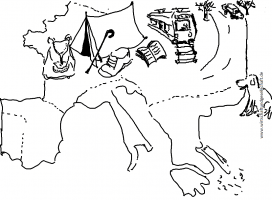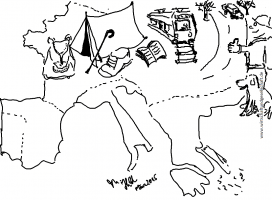Motivated by a talk I had today with two statisticians in the Instituto Nacional de Estatística (INE), the National Statistical Institute of Portugal, and against the background of the repeated critique by the U.S. Department of the Treasury Office of International Affairs on German economic policy, I shortly analysed the foreign trade between Germany and Portugal. The result clearly supports the argument of the U.S. Treasury – and shows what European politics lacks most.
What this journal has generally attested on the basis of our own dry statistical and theoretical analysis since years now holds true for Portugal, too: Since the beginning of the European Monetary Union (EMU) Germany realized an increasing export surplus. While German exports to Portugal increased, imports from Portugal to Germany even declined until the outbreak of the Eurozone crisis 2008/2009. And even now, when the Portuguese economy has become heavily depressed after the country had begun to employ austerity measures strongly advocated by the German government, Germany still runs a high and again even increasing export surplus with Portugal. That is what the statistics of the German Federal Statistical Office (Destatis) indicate as our two charts below show. It is a similar picture as recently presented in our analysis on German foreign trade with Greece, and that of U.S. trade in goods with Germany presented here.
How can it be that the pretended healthy and strong German economy, often called by German politicians, media and economists the “locomotive of business activity”, realises a surplus with depressed economies like Greece and Portugal? And how can it be that the distant U.S. treasury addresses this problem with pertinent analysis since years but not the ministries of finance of Portugal, Greece, France and other countries in the EMU until today? The theoretical and empirical evidence is clear: Germany has broken the rule of the European Central Bank (ECB) for years by falling below the inflation target of “below, but close to, 2 per cent”. That was and still is the result of laws introduced by the German government since 2003-2005. Those laws, named Agenda 2010, brought about a wage development falling behind the development of productivity plus the inflation target of the ECB. Since this relation decisively determines the development of prices the German inflation rate fell below the inflation target of the ECB; and since wages are at the same time the by far most important determinant of domestic demand German domestic demand has fallen behind that of other countries in the EMU and the rest of the world, so with the United States, too, the biggest trading partner of Germany outside the EMU.
However, it is rampant among German politicians, journalists and economists to demand from other countries to “stick to the rules” of the EMU. Of course, they mean the debt and deficit rules of the EMU. But debts and deficits are compulsary about trade surpluses and trade deficits since one countries surplus compulsary is another countries deficit. Hence, as long as this contradiction is not named in round terms by politicians, journalists and economists of the deficit countries in the direction of Germany the EMU will not be able to grow out of crisis, debts and deficits. More important: they will not be able to tackle the unbearable high incidence of unemployment. By the way, that was the first thing I asked, when I entered today the branch of the INE: How high is the unemployment rate here in Alentejo and in comparison to Portugal´s average? The unemployment rate in 2014 was 14.4 per cent in Alentejo and 13.9 per cent in Portugal. Among people between 25 and 34 years the respective figures are: 37.8 per cent and 34.8 per cent. The respective figures in 2007 were: 8.4, 8.0; 20.3, 16.7 per cent. And, of course, the recent unemployment figures would be much worse if not so many people would have left already the country because the situation is so desperate here after austerity measures were introduced. The government even planned to shut down the branch of INE where I got this statistical information from. But luckily they didn´t.

"National march to strengthen the people - All to the road - For a Portugal with a future" - Evora, 11 May 2015 (click to enlarge picture)
While on my tour through southern Europe I met yesterday an elder couple. He, a retired economist who worked in the 1970s for a branch of a German company in Portugal, said: “Now Europe has become the ´Fourth Reich´.” She said very determined: “I stopped buying German products.” Perhaps that will be the solution for Portugal, Greece, France, the United states and all the other countries around the world realizing trade deficits with Germany – at least so long until the foreign trade balance is balanced again or until the German government will change its mind in the direction of a more balanced and less destructive economic policy.
Dieser Text ist mir etwas wert
|
|




